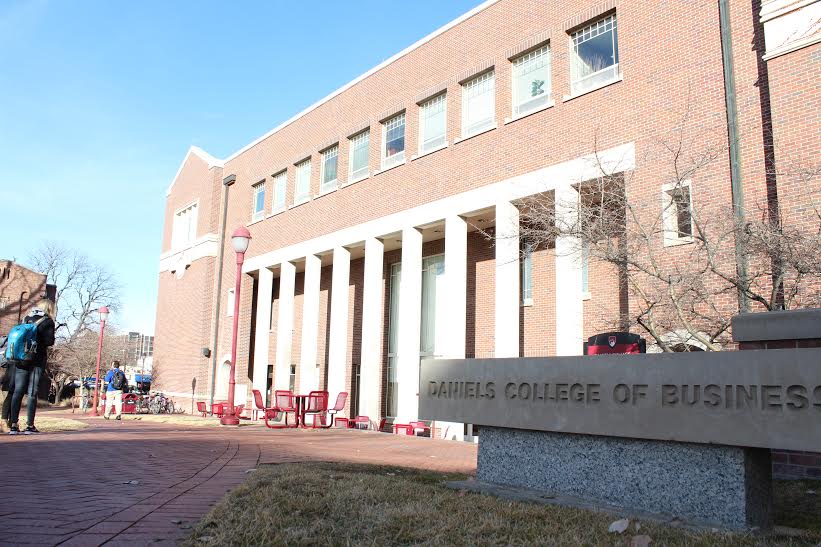The Daniels College of Business (DCB) is now offering its Global Theory In Practice course for International Masters of Business Administration (IMBA) Graduate Students in a new location: Myanmar.
The Global Theory course is required for students enrolled in the DCB International MBA Program, and takes place in the fall and spring of every school year. Every time the course is offered, a new location is offered as well. In Fall 2014, students traveled to Tanzania, but this Spring, students will travel to Myanmar. Pioneers will go to India for the Fall 2015 course.
“The students are doing a live consulting project for a company that’s doing business in the country that we’re traveling to,” said Associate Director of the Office of Globalization and the International MBA Program Leslie Carter. “The companies come in (physically if local, by Skype if not) and brief the students at the beginning of the quarter.”
The course includes a four-pronged approach. Students start with a co-requisite in cross-cultural management, which exposes them to multiple models for understanding how countries function, said Carter.
The students then spend ten weeks interacting with the clients doing all the secondary research to prepare for being in the country, according to Carter.
“At the same time, we bring international consultants into the course and they meet with the students four times.”
The third aspect of the course involves being in the country itself.
“We are on the ground generally for 10-14 days,” said Carter. “In addition to the students having free days in each location to carry out their own research, we take them to a variety of business and government meetings.”
Carter also aims to give the students a good overview of the country itself by visiting a variety of locations.
“We try to give them a broad overview of the business, political, and economic environment of the country that we visit,” said Carter. “We’ll visit multinationals, small locally owned companies, government organizations, non-governmental organizations and a variety of other locations so the students have a variety of perspectives [and] they can ask questions, draw information and be as well-informed as possible.”
The course also involves the students giving a final report and presentation to their clients.
The IMBA Program tries to choose countries with shifting economies for the students to visit.
“Primarily we focus on emerging and transitioning economies because a large component of the learning experience in addition to the consulting and the business is the cultural component,” said Carter. “We try to take them somewhere that they are less likely to have been on their own and maybe that they would be even less likely to go on their own.”
“The very first overseas program we ran with the new IMBA Program (2001), we took the group to Cuba,” said Carter. “Myanmar is absolutely a frontier economy. It’s been a closed country for a long time, so it’s a really exciting place to go in terms of it being right on the forefront. We expect it to be an amazing experience— not only from a business standpoint, but from a cultural one as well.”
Carter says many students look forward to this part of the program.
“It’s been an amazing program and is really the highlight for students in the program,” she said.
The program itself is currently undergoing change per the request of DCB’s new dean Brent Chrite.
“Currently, we are in a state of transition at Daniels,” said Carter. “Dean Chrite has decided to discontinue the International MBA Program.”
One reason for this change, according to Carter, is that the MBA program as a whole will become more globalized.
“The reason for that is he feels that in today’s world any MBA Program should be sufficiently globalized that we shouldn’t have a need for a specific International MBA Program,” said Carter. “So, we are completely redoing our MBA program and we are building global components into it.”











